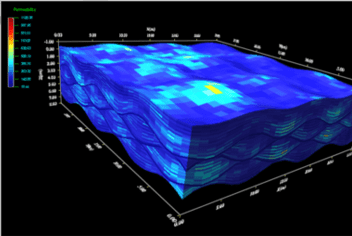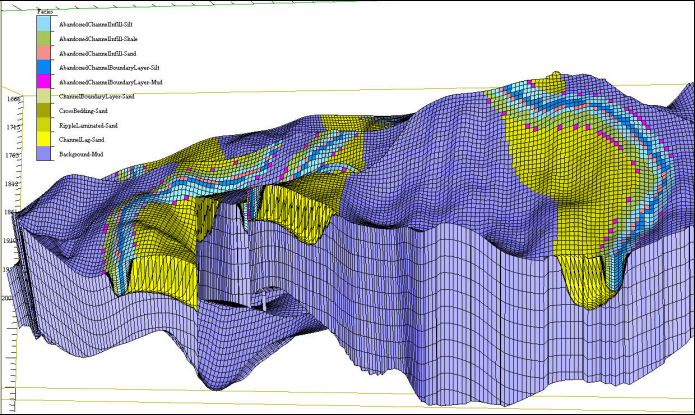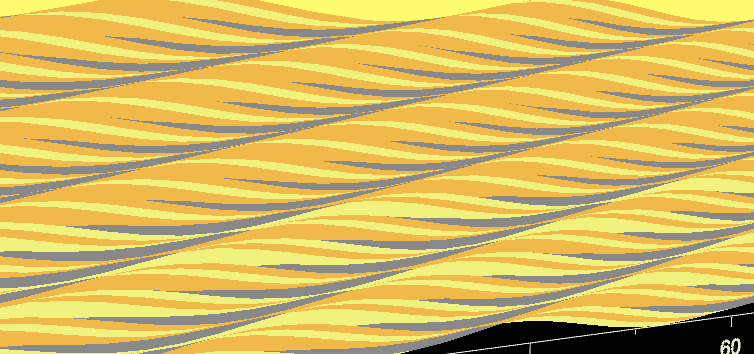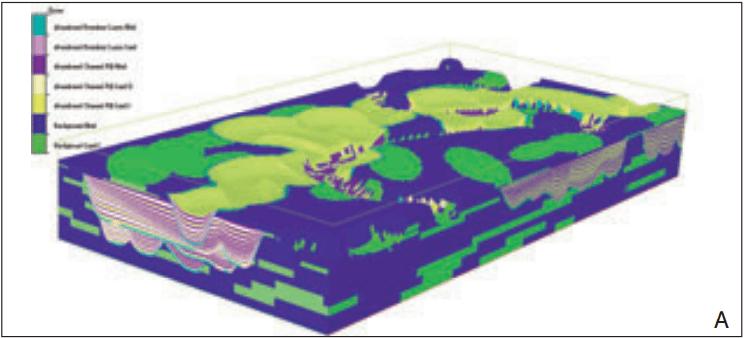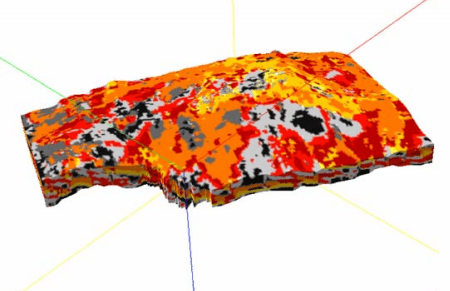Permeability is very difficult to estimate, mainly because it is very scale- and direction dependent. For instance, from permeability measured in core plugs to permeability estimated from well tests, there is a big difference in scale. How to compare these correct and apply further in reservoir computer models, is a...
Estimation of geocell water saturation based on small-scale structures in the Brent Group on the Oseberg and Gullfaks fields
Water saturation in reservoir rocks is highly dependent on petrophysical parameters as permeability, porosity and the amount of clay and shale in the sandstone. Saturations are important for static hydrocarbon volumes and for saturation-dependent flow parameters, such as relative permeabilities. Methods used today to estimate water saturation are usually based...
Combining Seismic Imaging with Geologic Process-Guided Modelling
Improve Channel Reservoir Characterization By Combining Seismic Imaging with Geologic Process Accurate identification and portrayal of a channel system is rarely easy. Exploiting it is even harder. The depositional processes and crosscutting relationships do not leave behind simple linear features with welldefined boundaries. Conventional examination of poststack seismic reflections leaves...
Implicit net-to-gross in the petrophysical characterization of thin-layered reservoirs
A new workflow has been devised to characterize the petrophysical properties of two, thin-layered, heterolithic log facies from a turbidite reservoir. The methodology is based on a published modelling technique that enables an extremely accurate reconstruction of the fine-scale lithological and sedimentological reservoir heterogeneities and a thorough integration of petrophysical...
3D geologic modelling of channelized reservoirs: applications in seismic attribute facies classification
Geological models are usually used qualitatively in seismic interpretation. This paper illustrates that quantitative representations of detailed geological models can significantly enhance seismic attribute interpretation through facies classification. When applying seismic attribute classification to reservoir facies mapping, one often faces such typical questions as: Which attributes should be used as...
Vertical Seismic Facies Detection Through Unsupervised 3D Voxel Based Seismic Facies Classification Applied to a Turbidite Field in Campos Basin, Brazil
Nowadays, automatic seismic facies analysis techniques have been growing as an important interpretation tool for the oil exploration industry. Depending on the reservoir knowledge, the seismic facies analysis could be supervised by a priori geological information, or could be unsupervised, when there are not enough data to guide the analysis....

